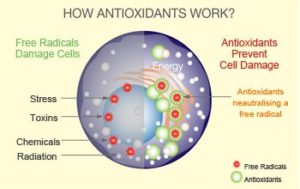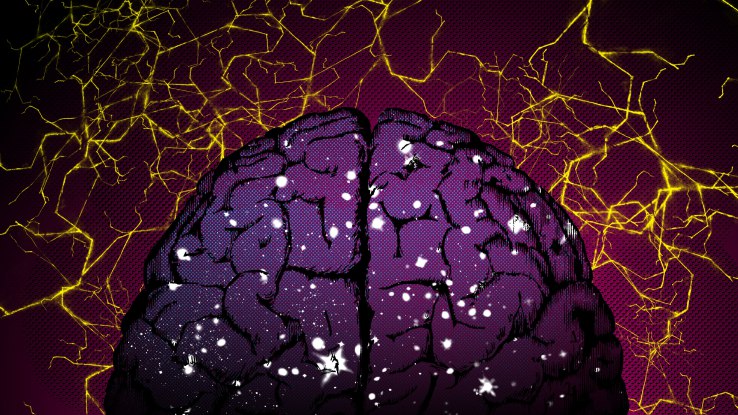“The treated mice also lost fewer brain cells and their brains contained 20 percent less of the sticky plaques associated with Alzheimer’s…”
Full transparency- the studies linked and excerpted below cite only a tenous positive relationship between Alzheimer’s and cannabinoids. C-B-D is not well-studied in the world yet and it’s important not to get ahead of ourselvses.

Now that I’ve laid down a note of caution I can write about evidence-based non-conventional therapies that can enhance brain health.
Please understand that I research and write about brain health because I have struggled with a common side effect of high-dose chemotherapy called post-chemotherapy cognitive impairment, more commonly called chemo-brain. I believe my high-dose chemo treatments dramatically increased my risk of all forms of cognitive impairment, including Alzheimer’s disease.

Whether its research focusing nutrition, EGCG, Resveratrol, Curcumin or Cannabinoids, and their possible brain health benefits, I find it and write about it.
Are you experiencing signs of Alzheimer’s Disease? Or other forms of cognitive disabilities? Scroll down the page, post a question or comment and I will reply to you ASAP.
thank you,
David Emerson
- Cancer Survivor
- Cancer Coach
- Director PeopleBeatingCancer
Recommended Reading:
“Salk Institute scientists have found preliminary evidence that tetrahydrocannabinol (THC) and other compounds found in marijuana can promote the cellular removal of amyloid beta, a toxic protein associated with Alzheimer’s disease.
While these exploratory studies were conducted in neurons grown in the laboratory, they may offer insight into the role of inflammation in Alzheimer’s disease and could provide clues to developing novel therapeutics for the disorder.
“Although other studies have offered evidence that cannabinoids (C-B-D) might be neuroprotective against the symptoms of Alzheimer’s, we believe our study is the first to demonstrate that cannabinoids affect both inflammation and amyloid beta accumulation in nerve cells,” says Salk Professor David Schubert, the senior author of the paper…
It has long been known that amyloid beta accumulates within the nerve cells of the aging brain well before the appearance of Alzheimer’s disease symptoms and plaques. Amyloid beta is a major component of the plaque deposits that are a hallmark of the disease. But the precise role of amyloid beta and the plaques it forms in the disease process remains unclear.
In a manuscript published in June 2016’s Aging and Mechanisms of Disease, the Salk team studied nerve cells altered to produce high levels of amyloid beta to mimic aspects of Alzheimer’s disease.
The researchers found that high levels of amyloid beta were associated with cellular inflammation and higher rates of neuron death. They demonstrated that exposing the cells to THC reduced amyloid beta protein levels and eliminated the inflammatory response from the nerve cells caused by the protein, thereby allowing the nerve cells to survive.
“Inflammation within the brain is a major component of the damage associated with Alzheimer’s disease, but it has always been assumed that this response was coming from immune-like cells in the brain, not the nerve cells themselves,” says Antonio Currais, a postdoctoral researcher in Schubert’s laboratory and first author of the paper. “When we were able to identify the molecular basis of the inflammatory response to amyloid beta, it became clear that THC-like compounds that the nerve cells make themselves may be involved in protecting the cells from dying.”
Brain cells have switches known as receptors that can be activated by endocannabinoids, a class of lipid molecules made by the body that are used for intercellular signaling in the brain. The psychoactive effects of marijuana are caused by THC, a molecule similar in activity to endocannabinoids that can activate the same receptors. Physical activity results in the production of endocannabinoids and some studies have shown that exercise may slow the progression of Alzheimer’s disease...”
The study was supported by the National Institutes of Health, The Burns Foundation and The Bundy Foundation.
“Alzheimer’s disease (AD) is a debilitating neurodegenerative disease that is affecting an increasing number of people. It is characterized by the accumulation of amyloid-β and tau hyperphosphorylation as well as neuroinflammation and oxidative stress. Current AD treatments do not stop or reverse the disease progression, highlighting the need for new, more effective therapeutics.
Cannabidiol (CBD) is a non-psychoactive phytocannabinoid that has demonstrated neuroprotective, anti-inflammatory and antioxidant properties in vitro.
The studies demonstrate the ability of CBD to reduce reactive gliosis and the neuroinflammatory response as well as to promote neurogenesis.
Importantly, CBD also reverses and prevents the development of cognitive deficits in AD rodent models.
Interestingly, combination therapies of CBD and Δ9-tetrahydrocannabinol (THC), the main active ingredient of cannabis sativa, show that CBD can antagonize the psychoactive effects associated with THC and possibly mediate greater therapeutic benefits than either phytocannabinoid alone.
The studies provide “proof of principle” that CBD and possibly CBD-THC combinations are valid candidates for novel AD therapies. Further investigations should address the long-term potential of CBD and evaluate mechanisms involved in the therapeutic effects described.”
“A substance that gives pot its kick appears to reduce the brain changes associated with Alzheimer’s disease – at least in mice.
In mice that had been genetically tweaked to develop symptoms like those of Alzheimer’s, animals that received a synthetic form of tetrahydrocannabinol for six weeks performed as well as healthy mice on a memory test, scientists reported Tuesday at the Society for Neuroscience meeting in San Diego.
Meanwhile, mice given a placebo instead of THC lost the ability to remember where to find the shallow spot in a pool of water.
The treated mice also lost fewer brain cells and their brains contained 20 percent less of the sticky plaques associated with Alzheimer’s…
The findings suggest that “cannabis could be beneficial for Alzheimer’s disease,” Bouter said.
But even if that’s true, she said, it doesn’t mean the growing number of healthy older people who smoke pot should celebrate by lighting up. “We did this same experiment in healthy mice,” she said, “and they had problems learning.”
“Should you give Grandpa THC? You should probably be cautious,” said Michael Taffe of the Scripps Research Institute, who moderated the press conference. “You could have something that is detrimental, if this does not translate to humans, or the person did not have the disorder.”
When it comes to understanding the effects of marijuana on humans, Roitman said, “the experience is way outpacing the science.”





